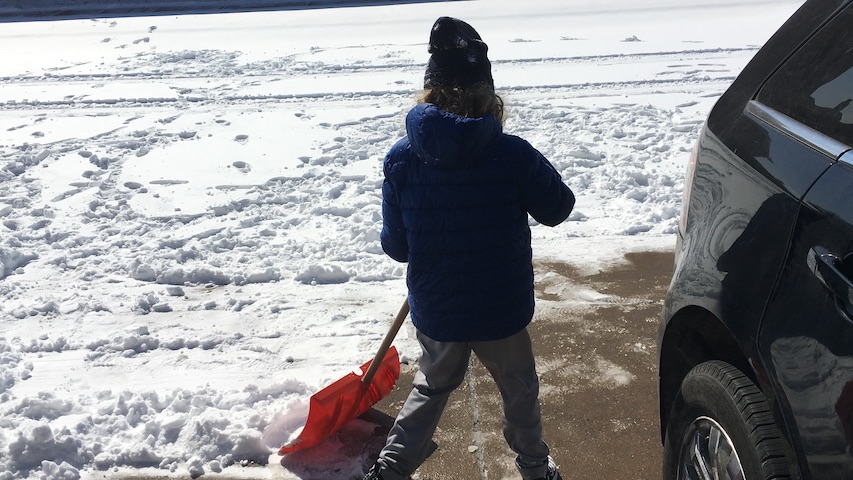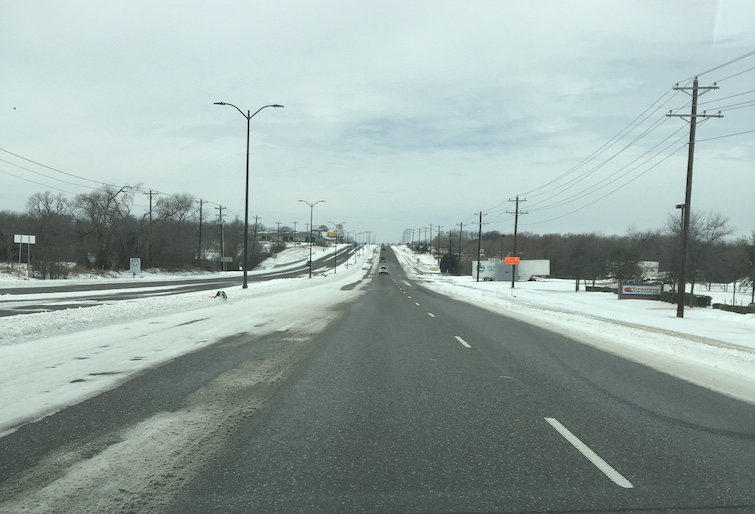There are many cost effective ways to winterize your home before the seasons change and the cold weather begins. But when a weather emergency strikes, it is best to take a few additional precautions, especially in the middle of winter or summer.
What if there is a power outage?
A power outage can be caused by a storm or any other strain on the infrastructure. Extreme temperatures can cause power usage to rise, and cause demand to go beyond what the power companies are able to deliver. Here are some best practices to follow when facing a weather event when a power outage is likely:
- Locate flashlights or other battery powered lights.
- Be sure you have enough batteries on hand.
- Keep electronic devices charged.
- Program the non-emergency numbers for your local police department, fire department, and your local water authority in your phone.
- Limit the amount of electricity used by turning off/unplugging unnecessary lights and devices, etc.
- If you have a fireplace, keep your firewood supply stocked. (NOTE: many house fires begin in the area behind the chimney. Be sure to understand how your fireplace is intended to be used, and never leave it burning unattended.)
- Keep track of where your extra blankets, sleeping bags, and any other cold weather gear is stored.
- Keep your gas tanks full, and never go less than half a tank.
- Even if you’re not leaving, start your vehicle and run the engine for at least 20 minutes a day. You want to keep your battery charged enough to start your engine when needed.
- Keep track of where any matches or lighters are located, as well as candles. Remember to use caution when using any open flame such as a candle to provide light and heat.
- Locate your water shut off valves in case of a leak or a broken pipe. There should be one outside near the street, and another near your hot water heater. Good to know in the event of an emergency.
- Always have sufficient fuel for your outdoor grills and/or smokers, whether they run on charcoal, wood, propane, propane, pellets, etc. If you lose power, this is how you will likely need to cook and/or boil water, or even melt snow!
- Buy at least a bag of ice melting compound, or rock salt. If those aren’t available, buy a bag of pool salt, or even a few boxes of ice cream salt.
- Have a supply of disposable cups, plates, utensils on hand in case you are unable to wash dishes.

What if I don’t have time to prepare? Chances are you’re reading this because a weather event took you by surprise, you did not take precautions, and you need to improvise. Here are a few cold weather hacks to help yourself in a potentially dangerous situation.
- DO NOT PANIC. You can do this.
- If you have an emergency, call 911
- If you need help but it is not an emergency, call the non emergency line at your local police department and ask who you should contact and/or what you can do. The fire department will also have answers.
- Keep every interior faucet (sinks and bathtub/showers etc.) running at a steady drip. This helps prevent freezing in your pipes, which can shut off your water supply, and eventually burst, causing a host of other problems.
- If your power goes out, wrap some unneeded towels or clothing around the pipes underneath faucets (as well as outdoor faucets if you weren’t able to cover them properly.)
- If you have a doorway with bad weather stripping or a window with bad seals, a roll of tape, (especially blue painter’s tape or masking tape) can seal the area. This can make a big difference, especially if your power is out.
- Shovel your walkway and driveway each day. This will prevent ice buildup, which can make leaving the home very difficult in the case of an emergency.
- Sprinkle salt outside to melt ice. Pool salt works great if you don’t have any ice melter available, as will ice cream salt. Regular table salt works as well, but to a lesser extent.
- Take inventory of how much food you have in the home, what it will take to prepare/cook, and which items expire first to plan your meals. Find ways to utilize leftovers and other random canned or boxed goods you may have. Now is the time.
- Be sure to start your car once a day and run the engine for 20 minutes to keep the battery charged. This can be a warming/cooling station for you, as well as a place to charge devices. Keep the car window open a bit to avoid carbon monoxide poisoning, which can kill you.
- Fill your bathtubs. I know, it sounds gross, but you can boil this water if the tub isn’t clean, and at the very least use it to flush toilets if your water line is frozen or turned off.
- When the sun is out, open any shades or blinds that face the sun to heat the home; this can big a big help. When the sun is no longer facing the windows, close the shades etc to help insulate.
- Be careful with alcohol. It can dehydrate you, and even lower your body temperature.
- If you have no power and no heat, have everyone stay as much as possible in the same room. Wear layers and use all the blankets. If you have a fireplace, help keep that family room insulated by hanging sheets or a painters dropcloth or whatever you have from the ceiling to stop the heat from dissipating into other parts of the home.
- If you need an emergency plumber, electrician, or other professional, check with your real estate agent. They may have someone they trust to refer that can help you!
- Check on neighbors, friends, and loved ones. You may be able to provide what they desperately need. They may have what you need as well.

What About Driving!? You have probably never driven on ice and snow covered roads before. Here are a few game changing tips.
- Stay off the roads if you don’t actually have to go anywhere. Chances are it will only be a few days.
- Drive at a lower speed.
- Slow down gradually.
- Try not to come to a complete stop if possible.
- Take turns slowly.
- Accelerate slowly to avoid spinning out and getting stuck.
- When changing lanes, do so slowly and gradually. This is how a lot of cars spin out and and lose control.
- Notice what parts of the road appear to have less snow and ice. Cars on the road will eventually melt a path for the tires. You’ll know it when you see it.
- Often a three lane road becomes a two or even a one lane road once snow begins to build up a bit heavy. Keep that in mind when driving and understand others may not have figured this out as they drive.
- At intersections, be cautious when turning or crossing. Make sure the vehicles on the other streets are able to stop and yield.
- Help people push their car when they’re stuck. That could be you in a few minutes just a block or two down the road!
What other helpful tips and hacks have you discovered?
Product Recommendations For Essential Emergency and Survival Gear: (As an Amazon Associate I earn from qualifying purchases.)
Compact LED Flashlight https://amzn.to/43oK6Ua
LED Headlamps https://amzn.to/3Wsg2EJ
Emergency Solar/Handcrank Radio With Flashlight https://amzn.to/429G80m
Battery Charger for AA and AAA https://amzn.to/3BWsX8g
Rechargeable AAA Batteries https://amzn.to/41Yl7pj
Rechargeable AA Batteries https://amzn.to/45DLHHA
Portable Car Battery Jump Starter https://amzn.to/45p8A1c
Mutltitool with pliers https://amzn.to/4312Au4
Backup Generator; 4000 Watts https://amzn.to/3WKZgRz
Backup Generator; 12000 Watts https://amzn.to/3oxzZNJ
Sleeping Bags https://amzn.to/3OCKSIS
Portable Phone Chargers https://amzn.to/41YjRCR
Lock De-Icer https://amzn.to/43mk3N9






GIPHY App Key not set. Please check settings